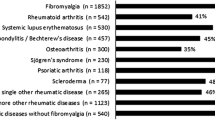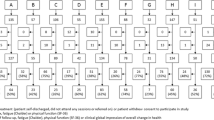Abstract
Objective: To determine whether there are differences between men and women patients who have chronic fatigue syndrome (CFS) and, if so, to ascertain whether a gender-related pattern exists.
Design: A descriptive study of demographic, clinical, and psychosocial measures, the results of which were prospectively collected for patients who had CFS.
Setting: A university-based referral clinic devoted to the evaluation and management of chronic fatigue.
Patients: 348 CFS patients who had undergone complete medical evaluations.
Measures: Clinical variables included symptoms, physical examination findings, and laboratory results. Psychosocial assessment consisted of a structured psychiatric interview, the Medical Outcomes Study Shortform General Health Survey to assess functional status, the General Health Questionnaire to ascertain psychological distress, the Multidimensional Health Locus of Control, and measures of attribution, social support, and coping.
Main results: Overall, few gender-related differences were identified. Women had a higher frequency of tender or enlarged lymph nodes (60% versus 33%, p≤0.01) and fibromyalgia (36% versus 12%, p≤0.001) and lower scores on the physical functioning subscale of the Medical Outcomes Study Short-form General Health Survey (37.6 versus 52.2, p<0.01); men more often had pharyngeal inflammation (42% versus 22%, p≤0.001) and reported a higher lifetime prevalence of alcoholism (20% versus 9%, p≤0.01).
Conclusions: In general, demographic, clinical, and psychosocial factors do not distinguish men from women CFS patients.
Similar content being viewed by others
References
Holmes GP, Kaplan JE, Gantz NM, et al. Chronic fatigue syndrome: a working case definition. Ann Intern Med. 1988;108:387–9.
Boly W. Raggedy Ann Town. Hippocrates. 1987;Jul/Aug;31–9.
Buchwald D, Komaroff AL. Laboratory findings in chronic fatigue syndrome. Rev Infect Dis. 1991;13(suppl 1):S12–8.
Schluederberg A, Straus S, Peterson P, et al. Chronic fatigue syndrome research: definition and medical outcome assessment. Ann Intern Med. 1992;117:325–31.
Komaroff AL, Buchwald D. Symptoms and signs in chronic fatigue syndrome. Rev Infect Dis. 1991;13(suppl 1):S8–11.
Khan A, Heneine WM, Chapman L, et al. Assessment of a retroviral sequence and other possible risk factors for the chronic fatigue syndrome. Ann Intern Med. 1993;118:241–5.
Miller MH, Urowitz MB, Gladman DD, Killinger DW. Systemic lupus erythematosus in males. Medicine (Baltimore). 1983;62:327–34.
Molina R, Provost TT, Arnett FC, et al. Primary Sjogren’s syndrome in men. Clinical, serologic, and immunogenetic features. Am J Med. 1986;80:23–30.
Wolfe F, Smythe HA, Yunus MB, et al. The American College of Rheumatology 1990 criteria for the classification of fibromyalgia. Report of the multicenter criteria committee. Arthritis Rheum. 1990;33:160–72.
Stewart A, Hays RD, Ware JE. The MOS Short-form General Health Survey: reliability and validity in a patient population. Med Care. 1988;26:724–35.
Goldberg DP, Hillier VF. A scaled version of the General Health Questionnaire. Psychol Med. 1979;9:139–45.
Bridges KW, Goldberg DP. The validation of the GHQ-28 and the use of the MMSE in neurological in patients. Br J Psychiatry. 1986;148:548–53.
Procidano ME, Heller K. Measures of perceived social support from friends and from family: three validated studies. Am J Community Psychol. 1983;11:1–24.
Folkman S, Lazarus RS. An analysis of coping in a middle-aged community sample. J Health Soc Behav. 1980;21:219–39.
Wallston KA, Wallston BS, DeVellis R. Development of the multidimensional Health Locus of Control scale. Health Educ Monograph. 1978;6:160–70.
Wallston KA. Assessment of control in health-care settings. In: Steptoe A, Appels A (eds). Stress, Personal Control and Health. Brussels-Luxembourg: John Wiley & Sons, 1989.
Wessly S, Powell R. Fatigue syndromes: a comparison of chronic “postviral” fatigue with neuromuscular and affective disorders. J Neurol Neurosurg Psychiatry. 1989;52:948–8.
American Psychiatric Association Diagnostic and Statistical Manual of Mental Disorders (3rd ed, revised), DSM-III-R. Washington, DC: APA, 1987.
Robins LN, Helzer JE. Diagnostic Interview Schedule (DIS): version III-A. St. Louis, MO: Department of Psychiatry, Washington University School of Medicine, 1985.
Bates DW, Buchwald D, Lee J, et al. Laboratory abnormalities in patients with the chronic fatigue syndrome [abstract]. Clin Infect Dis. 1994;18(suppl 1):86.
Virus killer works on “yuppie flu.” Seattle Times. 1991;Oct 3:1.
Shafran SD. The chronic fatigue syndrome. Am J Med. 1991;90:730–9.
Ware N, Kleinman A. Culture and somatic experience: the social course of illness in neurasthenia and chronic fatigue syndrome. Psychosom Med. 1992;54:546–60.
Abbey SE, Garfinkel PE. Neurasthenia and the chronic fatigue syndrome: the role of culture in the making of a diagnosis. Am J Psychiatry. 1991;148:1638–46.
Greenberg D. Neurasthenia in the 1980’s: chronic mononucleosis, chronic fatigue syndrome, and anxiety and depressive disorders. Psychosomatics. 1990;31:129–37.
Manu P, Matthews DA, Lane TJ. The mental health of patients with a chief complaint of chronic fatigue. Arch Intern Med. 1988;148:2213–7.
Gantz NM, Holmes GP. Treatment of patients with chronic fatigue syndrome. Drugs. 1989;38:855–62.
Goodnick PJ, Sandoval R. Psychotropic treatment of chronic fatigue syndrome and related disorders. J Clin Psychiatry. 1993;54:13–20.
Jenkins R. Sex differences in minor psychiatric morbidity. Psychological Medicine. Monograph supplement 7. Cambridge, MA: Cambridge University Press, 1985.
Craig TJ, Van Natta PA. Influence of demographic characteristics on two measures of depressive symptoms. The relationship of prevalence and persistence of symptoms with sex, age, education, and marital status. Arch Gen Psychiatry. 1979;36:149–54.
Helzer JE, Burnam A, McEvoy LT. Alcohol abuse and dependence. In: Robins LN, Regier DA (eds). Psychiatric Disorders in America: The Epidemiologic Catchment Area Study. New York: Free Press, 1991.
Author information
Authors and Affiliations
Additional information
Supported in part by grants RO1 AI26788 and RO1 AG08240 from the National Institute of Allergy and Infectious Diseases and the National Institute of Mental Health, and by a Young Investigator Award from the National Alliance for Research on Schizophrenia and Depression to Dr. Buchwald.
Rights and permissions
About this article
Cite this article
Buchwald, D., Pearlman, T., Kith, P. et al. Gender differences in patients with chronic fatigue syndrome. J Gen Intern Med 9, 397–401 (1994). https://doi.org/10.1007/BF02629522
Issue Date:
DOI: https://doi.org/10.1007/BF02629522




